How to Convert mWh to kWh?
If you've been thinking of going solar and choosing a portable power station that can charge home appliances, you'll need to understand how to convert mWh to kWh. In the US, most homes consume energy or electricity in kWh. By comparison, mWh is typically used for larger-scale electricity use. Converting kWh to mWh or vice versa will help you learn the energy requirements of your home and choose a compatible charging solution.
 Jackery Explorer Portable Power Stations are built with NMC and LiFePO4 battery types that store energy for later use. The most popular charging solutions for home and outdoor include Jackery Explorer 1500 Pro, Jackery Explorer 2000 Pro, Jackery Explorer 2000 Plus, and Jackery Explorer 3000 Pro. They have large battery capacities between 1500-3000Wh, so you can charge most appliances.
Jackery Explorer Portable Power Stations are built with NMC and LiFePO4 battery types that store energy for later use. The most popular charging solutions for home and outdoor include Jackery Explorer 1500 Pro, Jackery Explorer 2000 Pro, Jackery Explorer 2000 Plus, and Jackery Explorer 3000 Pro. They have large battery capacities between 1500-3000Wh, so you can charge most appliances.
|
Products |
Image |
Capacity |
Rated / Peak Power |
Battery |
Size |
|
 |
3024Wh |
3000W (6000W Peak) |
NMC |
Length: 18.6 in Width: 14.1 in Height: 14.7 in |
|
|
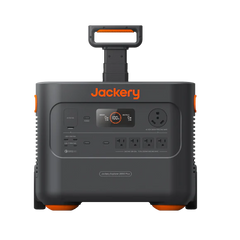 |
2-24 kWh |
3000W (6000W Peak) |
LiFePO4 |
Length: 14.7 in Width: 18.6 in Height: 14.1 in
|
|
|
 |
2160Wh |
2200W (4400W Peak) |
NMC |
Length: 15.1 in Width: 10.5 in Height: 12.1 in
|
|
|
 |
1512Wh |
1800W (3600W Peak) |
NMC |
Length: 15.12 in Width: 10.59 in Height: 12.11 in |
What is mWh to kWh?
Before we dive deep into what mWh and kWh are, here's a quick overview of these units.
|
|
Megawatt-hour |
Kilowatt-hour |
|
Symbol |
mWh |
kWh |
|
Used for |
Electric output |
Electrical energy |
|
Unit |
Energy at large scale |
Energy at small scale |
|
Conversion into Watts |
1×10^6 watt-hours (Wh) |
1000 watt-hour (Wh) |
A megawatt is a step up from a kilowatt. In mathematical terms, one megawatt equals 1000 kWh of energy. mWh is generally used to calculate how much electricity is consumed by any particular area, such as a city, state, or even a country.
Uses of mWh: The megawatt-hour is often used to measure electrical power generation, especially on the grid. It's also referred to when estimating the total home energy usage.
Here are a few main benefits of mWh or megawatt-hour.
- It's handy when determining the total amount of power consumed by any household or building over time.
- The unit is also responsible for estimating the amount of solar radiation captured by photovoltaic solar panels.
Kilowatt-hour or kWh
A kilowatt (or kW) typically equals 1000 watts of power. The terms like watt-hours (Wh) or kilowatt-hour (kWh) describe the energy use. In simple terms, a kWh defines the amount of energy used in one hour. Residential energy usage is generally measured in kWh. One kilowatt-hour is the amount of energy you would use to keep a single 1000W appliance running for 1 hour.
Uses of kWh: A bulb (100 watts) operating for 10 hours would consume around 1kWh. Similarly, a fridge freezer is expected to use 1kWh when used for 26 hours.
Here are a few benefits of kWh or kilowatt-hour.
- Kilowatt-hour is the standard unit of measurement and allows you to do accurate billing.
- Understanding the kWh will help you find the monthly electricity usage and how much energy your appliance is using.
Why You Need to Know How to Convert mWh to kWh?
Both mWh and kWh units are important for understanding electricity or energy consumption. The mWh to kWh conversion is essential as most household electricity bills are written in kilowatt-hours. If you're unsure why you must convert mWh to kWh, here are a few reasons to keep in mind.
Effective Energy Analysis and Comparison
Converting mWh to kWh or vice versa helps you with a standard metric for evaluating how efficiently an appliance utilizes energy. This is especially useful when comparing devices with different power requirements. In addition, it also assesses the energy performance of different electronic systems or devices.
Accurate Cost Calculation
Most utility companies charge customers based on their kWh consumption. With the knowledge of how to convert mWh to kWh, you can estimate the electricity costs more precisely.
Standardized Measurement
The kilowatt-hour is the widely accepted unit for measuring energy, making it incredibly easier to collaborate and communicate within the industries.
Access Energy Efficiency
Most electronic devices come with energy labels that indicate how efficiently they can operate. These labels have energy consumption rated in kilowatt-hour. Converting mWh to kWh will help you purchase energy-efficient appliances and reduce overall electricity costs.
How to Convert mWh to kWh?
Mathematically, one megawatt-hour (mWh) equals 1000 kilowatt-hour (kWh). In order to convert mWh to kWh, you'll need to multiply the megawatt-hour by 1000.
Formula: kWh = mWh * 1000
Here is an example to understand better.
Suppose you want to convert 10 mWh to kWh.
Kilowatt-hour = 10 mWh * 1000 = 10,000 kWh.
The following diagram reveals the mWh to kWh conversion scale.
 According to the scale, 0.25 mWh is equal to 250 kWh, or 0.5 mWh is equivalent to 500 kWh. Instead of putting values in the formula, you can check the scale and learn the value of kWh.
According to the scale, 0.25 mWh is equal to 250 kWh, or 0.5 mWh is equivalent to 500 kWh. Instead of putting values in the formula, you can check the scale and learn the value of kWh.Here's a table that reveals the larger mWh to kWh conversions.
|
Megawatt-hours |
Kilowatt-hours |
|
0.01 mWh |
10 kWh |
|
0.02 mWh |
20 kWh |
|
0.03 mWh |
30 kWh |
|
0.04 mWh |
40 kWh |
|
0.05 mWh |
50 kWh |
|
0.06 mWh |
60 kWh |
|
0.07 mWh |
70 kWh |
|
0.08 mWh |
80 kWh |
|
0.09 mWh |
90 kWh |
|
0.1 mWh |
100 kWh |
|
0.2 mWh |
200 kWh |
|
0.3 mWh |
300 kWh |
|
0.4 mWh |
400 kWh |
|
0.5 mWh |
500 kWh |
|
0.6 mWh |
600 kWh |
|
0.7 mWh |
700 kWh |
|
0.8 mWh |
800 kWh |
|
0.9 mWh |
900 kWh |
|
1 mWh |
1,000 kWh |
How to Convert kWh to mWh?
Similar to mWh to kWh conversion, it is easy to convert kWh to mWh. For this, all you need to do is divide the kWh energy by 1000.
Formula: mWh = kWh ÷ 1000
Here's an example to understand better where we will convert 5000 kWh to mWh.
mWh = 5000 kWh ÷ 1000 = 5 mWh.
The following table reveals various kilowatt-hour measurements that are converted to megawatt-hour.
|
Kilowatt-hour |
Megawatt-hour |
|
0.1 kWh |
0.0001 mWh |
|
1 kWh |
0.001 mWh |
|
2 kWh |
0.002 mWh |
|
3 kWh |
0.003 mWh |
|
5 kWh |
0.005 mWh |
|
10 kWh |
0.01 mWh |
|
20 kWh |
0.02 mWh |
|
50 kWh |
0.05 mWh |
|
100 kWh |
0.1 mWh |
|
1000 kWh |
1 mWh |
Jackery Portable Power Stations Explained
Jackery provides a wide range of solar generators, solar panels, and portable power stations to reduce the impact of carbon emissions. The best part about the Jackery Explorer Portable Power Stations is that you can charge them using the foldable and portable Jackery SolarSaga Solar Panels.
The monocrystalline silicon solar cells collect and convert the solar energy into DC electricity. The generated electric current transfers to the Jackery Explorer Portable Power Stations, where the pure sine wave inverter converts the DC to AC electricity. Jackery Solar Generators can then supply electricity to home appliances for long hours.
Jackery Explorer 3000 Pro Portable Power Station
The Jackery Explorer 3000 Pro Portable Power Station has a NMC battery with a 3024Wh capacity. It can charge 99% of home or outdoor appliances, such as refrigerators, heaters, electric grills, and even microwaves. The Jackery Explorer 3000 Pro can be recharged via three methods: Jackery SolarSaga Solar Panels, wall chargers, and car chargers. It has a weight of 63.93 lbs, making the power station 30% lighter and smaller than other similar products.
 Customer Review
Customer Review
"The Jackery Explorer 3000 Pro is perfect. My entire home office (laptop, two external monitors, two printers, plus additional accessories) is connected to a surge suppressor, which I'm able to easily switch from the wall connection to my Jackery E3000 PRO. This setup will run my home office for several days." — TMann Stuff.
Jackery Explorer 2000 Plus Portable Power Station
With a generous battery capacity of 2042.8Wh, the Jackery Explorer 2000 Plus Portable Power Station can charge 99% of appliances. It has a LiFePO4 battery that can be expanded from 2kWh to 24kWh using Jackery Battery Pack 2000 Plus. With the help of 6*Jackery SolarSaga 200W Solar Panels, the power station can be charged in only 2 hours.
 Customer Review
Customer Review
"I like this thing; it's got a lot of power. It powered my air conditioner on high. It powered power tools. It's really not that heavy. It doesn't take too long to charge." — Michael Wheeler.
Jackery Explorer 2000 Pro Portable Power Station
If you are looking for a solar charging solution that can charge most appliances but is lightweight, the Jackery Explorer 2000 Pro Portable Power Station makes more sense. The NMC battery has a capacity of 2160Wh and comes with multiple output ports, so you can charge 8 devices simultaneously. It has a weight of around 53 lbs and features a foldable handle design to improve the outdoor charging experience.
 Customer Review
Customer Review
"Got two of these Jackery Explorer 2000 Pro for the California blackouts. This is one of the best portable power stations as it could easily handle the surging demand for my AC and two fridges during the blackout." — S Wong.
Jackery Explorer 1500 Pro Portable Power Station
Similar to its larger counterpart, the Jackery Explorer 1500 Pro Portable Power Station can also charge 8 devices simultaneously. It has a battery capacity of 1512Wh with an AC output of 1800W. This portable power station takes safety to the next level, all thanks to 8 state-of-the-art temperature sensors and intelligent BMS for accurate and safe temperature control.
 Customer Review
Customer Review
"The Jackery makes for flexible camping without limiting us to shore power. I appreciate that we can charge it while driving, too." — J J.
|
|
||||
|
Working Hours |
Electric Oven (800W): 3.2H Outdoor Electric Grill (700W): 3.6H Coffee Maker (1000W): 2.5H Portable Air Conditioner (1000W): 2.5H Kettle (850W): 3H |
Electric Oven (800W): 2.1H Outdoor Electric Grill (700W): 2.4H Coffee Maker (1000W): 1.7H Portable Air Conditioner (1000W): 1.7H Kettle (850W): 2H |
Electric Oven (800W): 2.2H Outdoor Electric Grill (700W): 2.6H Coffee Maker (1000W): 1.8H Portable Air Conditioner (1000W): 1.8H Kettle (850W): 2.1H |
Electric Oven (800W): 1.6H Outdoor Electric Grill (700W): 1.8H Coffee Maker (1000W): 1.2H Portable Air Conditioner (1000W): 1.2H Kettle (850W): 1.5H |
How to Convert mWh to kWh FAQs
How many kWh in 1 mW?
There's no direct relation between kWh and mW. However, you can drive the results with some mathematical calculations. For example, the 1 kWh roughly equals 1/1000 mWh of energy.
1 kWh * 1000 = 1 mWh
And, 1 mWh = 1 MW * 1 H
Using the two formulas, the relation between kWh and mW will be as follows:
1 MW * 1 H = 1 kWh * 1000
1 MW = (1 kWh * 1000) ÷ 1 H = 1000 kWh ÷ 1 hour
This means one megawatt (1 MW) equals 1000 kilowatt-hour (kWh) energy consumption in one hour.
What's the difference between mWh and kWh?
Both megawatt-hours and kilowatt-hours measure the power output but at different levels. While kWh is mainly used to calculate home energy consumption, the mWh represents the electricity output at a large scale.
How many homes can 1 megawatt power?
One megawatt equals 1000 kilowatts or one million watts, which is enough to power 750 homes at once. However, the number can fluctuate depending on the electricity demand during different times of the day, seasons, and other factors.
Final Thoughts
When calculating the electricity consumption of the appliance or choosing the right portable power station, you'll need to learn how to convert mWh to kWh. If you are looking for a compatible charging solution that can power most home or outdoor appliances, Jackery Solar Generators might be the ideal fit.
The Jackery Explorer Portable Power Stations are robust, compact, and powerful battery backups for homes and outdoors. They're compatible with Jackery SolarSaga Solar Panels, so you can recharge the power station without electrical outlets. For more information about the Jackery products, you may check the product page.
Disclaimer:
The runtime mentioned for appliances powered by Jackery is for reference only. Actual runtime may vary under different conditions. Please refer to real-world performance for accurate results.

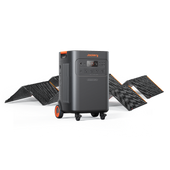











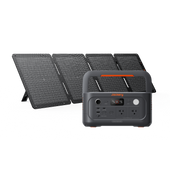



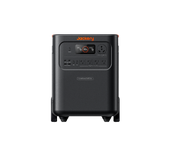
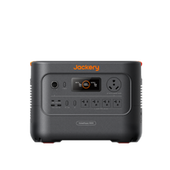





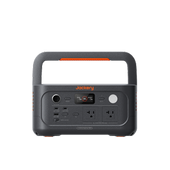





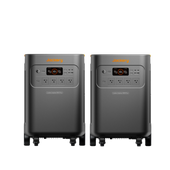
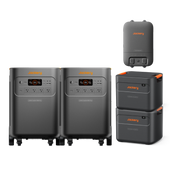





![[Add - on] Jackery Manual Transfer Switch for Explorer 5000 Plus - Jackery](http://www.jackery.com/cdn/shop/files/add-on-jackery-manual-transfer-switch-for-explorer-5000-plus-9017324.png?v=1754016782&width=170)
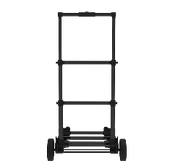
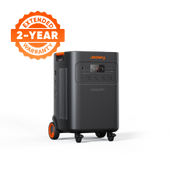
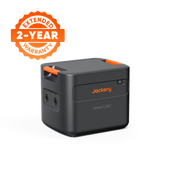
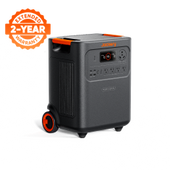

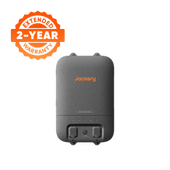



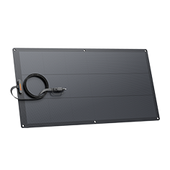
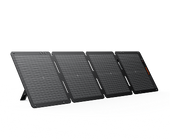




















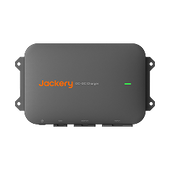




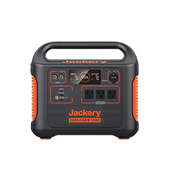






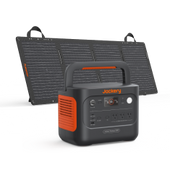
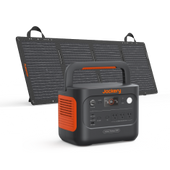






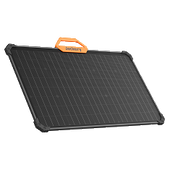




































Leave a comment